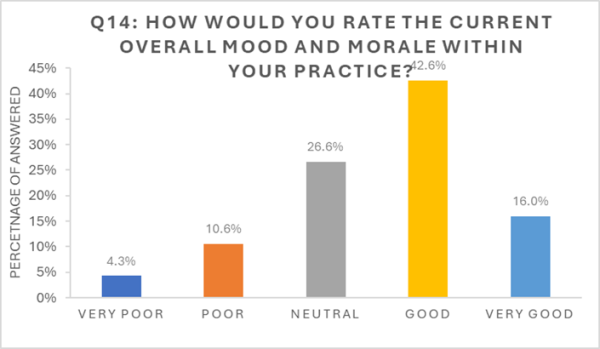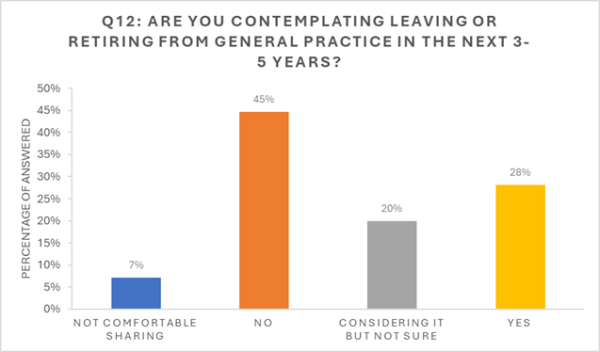Primary care surveys show lack of funding and workforce as key pressures
Primary care surveys show lack of funding and workforce as key pressures
Surveying primary care providers in Otago and Southland shows general practices and their staff have continued concerns about capacity, workforce and remaining financially sustainable, but that overall, staff morale is positive.
WellSouth Primary Health Network, the primary health organisation (PHO) for Otago and Southland (Southern), has surveyed general practices over the last six months on key topics covering funding, overall morale, advocacy, capacity, capitation and loss of workforce in primary care.
The Primary Care Survey was sent to around 1,300 staff at 78 general practices in Southern, in the first quarter of 2024.
In the survey, staff from more than half of the general practices responded. Feedback was primarily from non-clinical staff for example practice managers and administrators, followed by GPs and then nurses, nurse practitioners and pharmacists. The split of practices represented was 37% rural and 63% urban.
You can find a copy of the WellSouth Primary Care survey summary November 2024 here.
You can find a copy of the WellSouth Primary Care survey full analysis report November 2024 here.
WellSouth CEO Andrew Swanson-Dobbs says the survey provided some interesting results.
“Funding was a hot topic, and clear themes emerged that showed our primary care providers worry about funding, rural primary care, and the rising expenditure for general practices,” he said.
“Comments also showed that pay parity is an issue, extending across parity between secondary and primary care nursing as well as the growing telehealth sector that is paying locums who provide telehealth services more than what traditional in-practice clinicians will earn.”
He said comments about burn out were of concern.
“We know primary care is having a tough time. The survey comments were by far the most telling, with people talking about burn out, lack of money and concern for patients and their inability to help patients due to workforce pressures.”
“Around 50% of respondents said they were leaving or considering leaving general practice in the next 3-5 years, due to retirement or other reasons.”
Mr Swanson-Dobbs said that despite this, morale in general practice was good, overall.
“What was perhaps surprising, but heartening, was that morale was good. Fifty percent of the people who responded still said they were ‘OK’. Four percent signalled that they were doing it ‘very poor’, which in a small network like ours is still significant.”
One survey respondent said:
“…we have a great team. the financial issues take a toll. We are going to increase our prices again and are concerned especially for the young families who don't have a CSC [community services card]. Our GPs work very hard, and the difficulty in getting adequate funding creates stress for them as well.”
He said the questions were designed to get to the heart of primary care tensions and concerns, as a way to better advocate for primary care.
In Aotearoa New Zealand, general practice provides 20 million consultations annually.
A second WellSouth survey, taken mid-year, asked primary care staff to respond to Health New Zealand I Te Whatu Ora’s (HNZ) proposed 4% capitation uplift. Capitation is the subsidy payment model where HNZ pays a fixed amount per patient via the PHO of that geographic area.
Mr Swanson-Dobbs said the response was to overwhelmingly reject the offer as it was not enough for general practices to remain financially sustainable.
HNZ did not change the uplift percentage but gave practices permission to increase consultation fees directly with patients.
“Many of our practices are now putting up patient consultation fees as a result of the low uplift, and ongoing lack of investment in primary care,” says Mr Swanson-Dobbs.
“When people are no longer able to afford to see their doctor or nurse, this leads to more and more pressure on hospitals and other secondary care.”
He said, “Information from these surveys shows that at our primary care level, pressures are mounting and we need to take heed of that. We need to re-orientate the health system to focus on the care at top of the cliff, not just the bottom!”
WellSouth intends to survey primary care providers – predominantly general practice – again this year to get comparative data.
“We’ll be interested to see if the morale dial shifts as we continue to wrestle with these workforce challenges and persistent under-funding of primary care,” says Mr Swanson-Dobbs.

